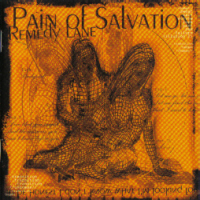
Remedy Lane is the fourth album by Swedish progressive rock band Pain of Salvation, released in Spring 2002. It is a concept album focusing on a character's search for self-discovery. It was described by Allmusic as Pain of Salvation's breakthrough album.

Ship Arriving Too Late to Save a Drowning Witch is an album by Frank Zappa, released in May 1982 and digitally remastered in 1991. It features five tracks composed by Zappa, and one song, "Valley Girl", co-written with Moon Unit Zappa, his daughter, who provided the spoken monologue mocking some of the Valley girls at her school including phrases like "Gag me with a spoon!".

Kansas is the eponymous debut studio album by American progressive rock band Kansas, released in 1974 by Kirshner in the United States and Epic Records in other countries.
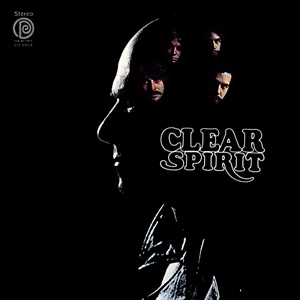
Clear is the third studio album by American rock band Spirit. It was released in September 1969 by Ode Records.

Twilight in Olympus is the fourth studio album by progressive metal band Symphony X, released in 1998 through Zero Corporation (Japan) and Inside Out Music (Europe); a remastered special edition was reissued on January 13, 2004 through Inside Out. The album features drums played by Thomas Walling, who filled in for regular drummer Jason Rullo after he temporarily left the band for personal reasons. It is also the last Symphony X album with longtime bassist Thomas Miller, who left the band during the album's tour.

Platinum is the fifth record album by Mike Oldfield, released in 1979 on Virgin Records. It was Oldfield's first album to include shorter songs and music written by others. A modified version of the album was released in the United States and Canada and titled Airborn.

Five Miles Out is the seventh record album by Mike Oldfield, released in 1982, at a time when his music was moving away from large-scale symphonic pieces towards a more accessible pop style. It is one of the very few albums on which Oldfield sings lead vocals, as he is noted for not having any confidence in his voice's qualities. The album produced two singles.
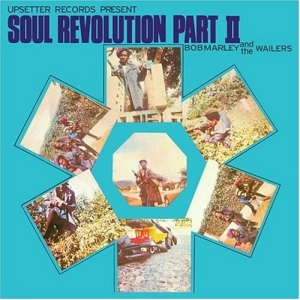
Soul Revolution is an album by Bob Marley and the Wailers. It was produced by Lee "Scratch" Perry and the Wailers. A "dub" version with the vocals removed was released as Soul Revolution Part II. In 1988 both versions were released as one set.

"Turn It into Love" is a single released by Australian singer Kylie Minogue. It was taken from her debut album Kylie. The single was released in December 1988 in Japan only. The B-side was a new song "Made in Heaven", which also served as the B-side to both "Je ne sais pas pourquoi" and "It's No Secret" in other international territories.

In the Land of Grey and Pink is the third album by English progressive rock band Caravan, released in April 1971 on Deram Records. It was produced by David Hitchcock and was the last album to feature the original lineup of Richard Coughlan, Pye Hastings, Richard Sinclair and Dave Sinclair until 1982's Back to Front.

Cordon Bleu is the third album by the Dutch symphonic rock group Solution. It was released in 1975 on Elton John's label, The Rocket Record Company.

Fully Interlocking is the fourth album by the Dutch symphonic rock group Solution. It was released in 1977 by The Rocket Record Company. The line "Fully interlocking" appears on jigsaw puzzle boxes, as referenced on the album cover.
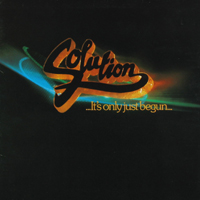
...It's Only Just Begun... is the fifth album by the Dutch symphonic rock group Solution. It was released in 1980 on CBS Records.

Runaway is the sixth and last studio album by the Dutch rock group Solution. It was released in 1982 on CBS Records.
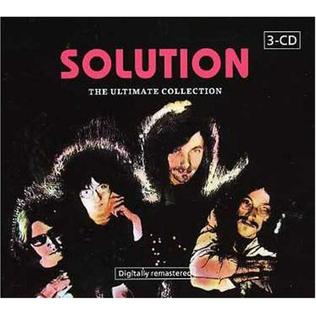
The Ultimate Collection is a three-CD compilation of music by the Dutch symphonic rock band Solution. The first in-depth retrospective of the group, it was released by Universal and Hunter Entertainment in 2005. The sound is digitally remastered.

Mandy is the only studio album by Mandy Smith. It was released by PWL in 1988, re-issued in 1993 in Japan and re-mastered and re-issued in 2009.

"House of the King" is an instrumental by the Dutch rock band Focus. It was released as a single in January 1971 and reached No. 10 on the Dutch charts and sold well across Europe. In the UK, it was issued on both the group's first album, In And Out of Focus and the 1972 double album Focus 3.





















